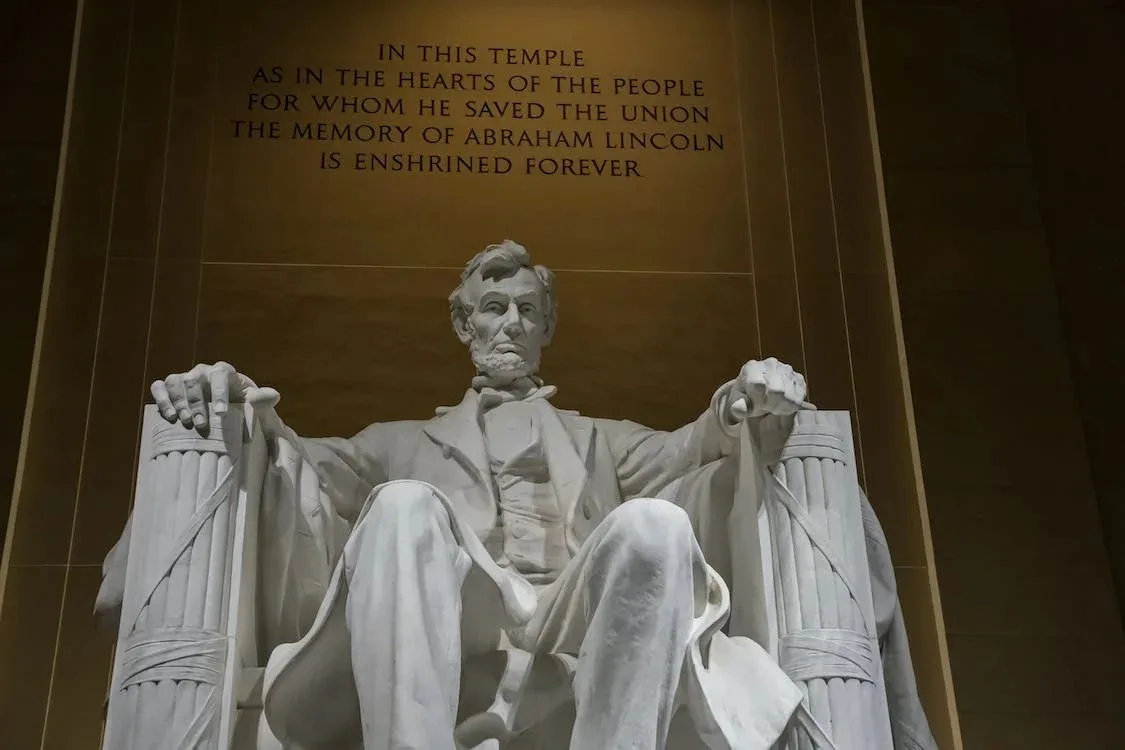The Assassination of Abraham Lincoln: A Tragic End to a Great Leader
Image source: Pexels.com
Abraham Lincoln was the 16th president of the United States and one of the most influential figures in American history. He led the nation through the Civil War, abolished slavery, and preserved the Union. He was also a man of humble origins, a self-taught lawyer, and a gifted orator. He had a vision of a more perfect union, where all people were equal and free.
But his life was cut short by a bullet on the night of April 14, 1865, when he was assassinated by John Wilkes Booth, a Confederate sympathizer and actor. Lincoln was attending a play at Ford’s Theatre in Washington, D.C., with his wife Mary and two guests, Major Henry Rathbone and Clara Harris. Booth sneaked into the president’s box and shot him in the back of the head with a .44-caliber derringer. He then jumped onto the stage, breaking his leg in the process, and shouted “Sic semper tyrannis!” (“Thus always to tyrants!”) before escaping.
Lincoln was carried across the street to the Petersen House, where he died the next morning at 7:22 am. His death plunged the nation into mourning and shock, as people struggled to cope with the loss of their beloved leader. His funeral train traveled across the country for 13 days, stopping at various cities for people to pay their respects. He was finally buried in his hometown of Springfield, Illinois.
The Motive Behind Booth’s Crime
Booth was a member of a famous family of actors, but he was also a fanatical supporter of the Confederate cause. He hated Lincoln for his policies against slavery and secession, and blamed him for the defeat of the South in the Civil War. He had originally planned to kidnap Lincoln and exchange him for Confederate prisoners, but after the war ended, he changed his mind and decided to kill him instead.
He also wanted to kill Vice President Andrew Johnson and Secretary of State William Seward, hoping to create chaos and revive the Confederate cause. He recruited several accomplices to help him carry out his plot, but they failed in their missions. Johnson’s attacker lost his nerve and did not show up at his hotel, while Seward’s attacker stabbed him several times but did not kill him.
Booth managed to escape from Washington, D.C., with the help of David Herold, one of his co-conspirators. They fled to Maryland and then to Virginia, where they hid in a barn owned by Richard Garrett. On April 26, federal troops surrounded the barn and set it on fire. Herold surrendered, but Booth refused to give up. He was shot by a soldier named Boston Corbett, either by accident or on purpose. He died a few hours later.
The Consequences of Lincoln’s Assassination
Lincoln’s assassination had a profound impact on American history and culture. It marked the first time that a president was killed in office, and it shocked the nation that was still recovering from the Civil War. It also changed the course of Reconstruction, as Lincoln’s successor Andrew Johnson had a different approach to dealing with the former Confederate states. Johnson was more lenient and forgiving than Lincoln, and he clashed with Congress over how to protect the rights of freed slaves.
Lincoln’s Legacy
Lincoln’s assassination also made him a martyr and a symbol of democracy, freedom, and equality. He is widely regarded as one of the greatest presidents in U.S. history, and his legacy is celebrated in monuments, memorials, museums, books, movies, and songs. His face is carved on Mount Rushmore alongside George Washington, Thomas Jefferson, and Theodore Roosevelt. His image is printed on the penny and the $5 bill. His speeches are quoted by politicians and activists of all stripes.
Conspiracy Theories
Lincoln’s assassination also inspired many conspiracy theories and myths over the years. Some people believe that Booth did not act alone, but was part of a larger plot involving high-ranking officials or foreign agents. Some people claim that Booth survived and escaped to another country or lived under an alias. Some people even suggest that Lincoln was not really killed by Booth, but by someone else who switched places with him.
Conclusion
The assassination of Abraham Lincoln was one of the most tragic events in American history. It robbed the nation of a great leader who had saved it from disunion and slavery. It also sparked a series of events that shaped the future of the country for better or worse.





0